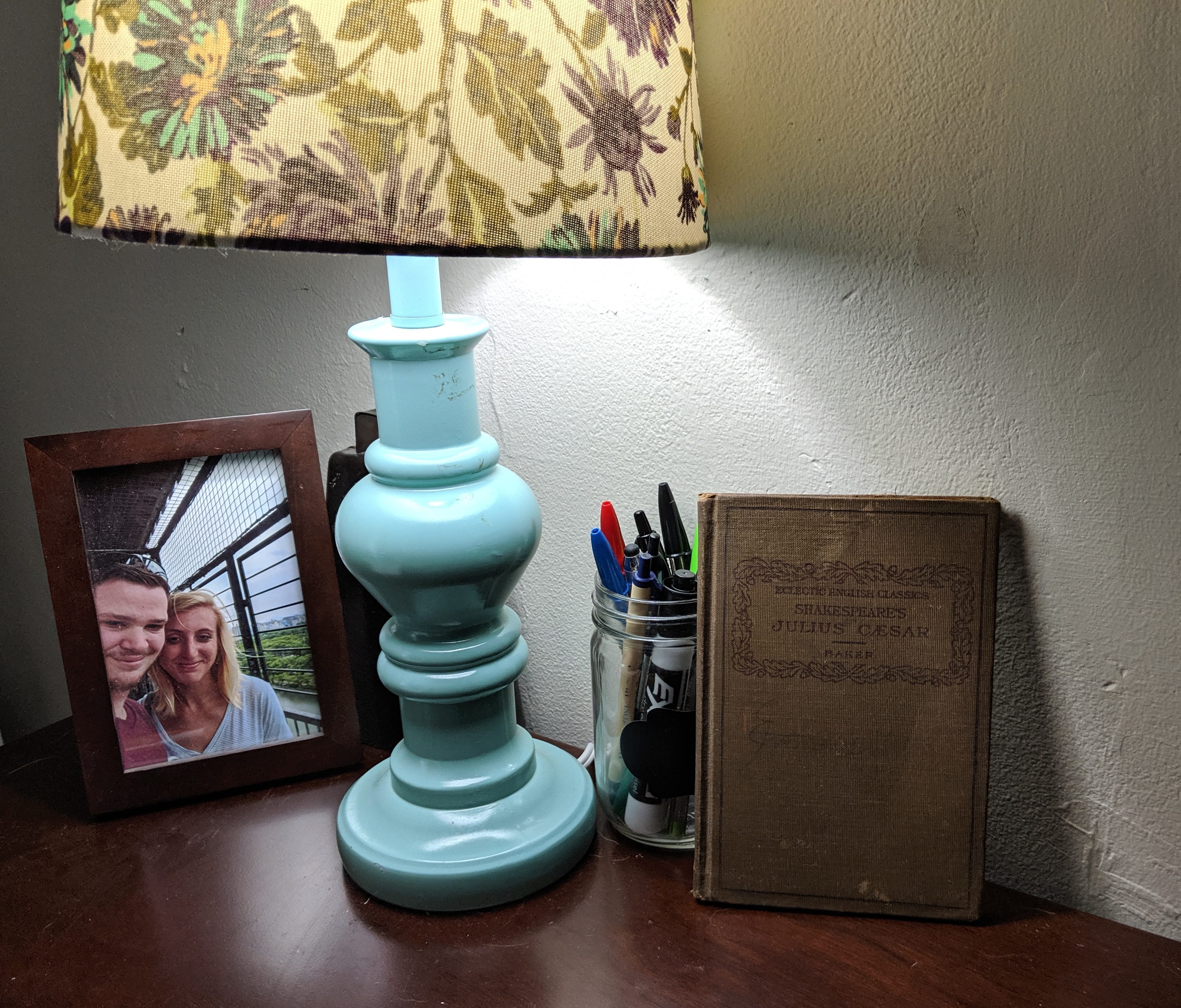
Overcoming Perfectionism: 4 Tools to Rediscover Your Worth
Let me tell you a familiar story from the Bible. It begins with a woman named Martha welcoming guests into the home she shares with her sister. As she leads them into the living room, head held high, Martha asks if she can provide any refreshments. She graciously passes out glasses of cold lemonade and lays out a charcuterie board of cheeses, meats and crackers for them to munch before dinner.
Better get to work. This food isn’t going to cook itself.
Martha busies herself with cooking lunch, putting in a load of laundry to wash, sweeping up dirt, polishing the silver, and pulling out the good china for their meal. Between tasks and bursts of laughter from the group, Jesus’ gentle voice floats to her in the other room.
I’m missing out on something wonderful right now, but I need to finish this work.
Keenly aware that her sister is nowhere to be found, Martha pushes on in her work. After all, if she doesn’t do it, it won’t get done. Her normally even emotions begin to simmer underneath her exterior. She knows the work she’s doing is good. She knows being a thoughtful hostess to her guests, to Jesus the Messiah, no less, is certainly a worthy endeavor.
I will not let the Messiah sit in a house with no freshly baked cookies and dust bunnies in the corners.
The harder she works, the hotter her collar feels. Soon, her thoughts take on a bitter tinge, seeping down into her heart. Finally, Martha has had enough (or for all of you who grew up in the south, she’s had it up to here). With angry puffs pulsing off of her, she walks up to the group to ask Jesus why He hasn’t told her sister to come help her with the chores.
Perfectionism’s Little Sister, Bitterness
The sneaky, creeping feeling of bitterness is one of which I am intimately familiar. I’d love to tell you I overcame my struggle with bitterness years ago when I also left perfectionism in the dust.
If perfectionism is the flashy older sister, bitterness is the lesser-known younger sister, hidden away in the attic. Bitterness is simply the internal seed planted by perfectionism. On the outside we see organization, lists, hard work, and lots of black coffee. But underneath it all is this tiny black seed growing larger and larger the more we water it with our perfectionist behavior.
You might see this in your own life as we saw it in Martha’s story above. But it might also look like feeling bitter that you are left to clear up and wash the dishes on your own. Or you’re always the one who remembers the dog needs his medicine on the third Tuesday of the month. Whatever form this takes in your life, it probably leaves you feeling frustrated, a little angry, and very alone. After all, you’re the only one you can trust to do these things the right way, right?
If there’s one thing perfectionism is good at, it’s singling us out, pulling us out of the herd and placing a barrier around us. Without intervention, perfectionism takes my eyes off of the God I love and turns them toward the badly angled mirror, distorting everything it sees. Instead of focusing on loving God and showing that love to others, I’m focused on me.
The Path of Perfectionism
If you gathered a group of women together and asked them all to raise their hand if they’re perfectionists, you might get one or two hands in the air. We don’t like to admit to others, or even ourselves, that our behavior might be the thing that needs changing for us to live a more fulfilling life.
If you watched the television series Friends, you probably loved watching the neurotic behavior of the clean-freak Monica. Her character embodies the perfectionist lifestyle to the extreme. (I mean, she has a tiny vacuum to vacuum her vacuum.) But even Monica had to learn how prioritize her relationships over her perfectionism. It’s no different with us and our relationship with Jesus.
When we leave our perfectionism untended, letting it grow wildly like the vines trying to wrap around the end of my house, it has devastating effects, not only on us, but on the people we love too. Perfectionism leads to…
Striving to the Point of Exhaustion
Striving means to “struggle vigorously” or “to make strenuous efforts toward any goal” (https://www.dictionary.com/browse/striving). When my plate is so full that the moment my bottom touches my beloved spot on the couch in the evening my eyelids droop, I know something is off. Sometimes letting the dishes stay unwashed in the sink is okay or letting the baby toys stay strewn across the black and white living room rug is okay. The only person focused on these things is me.
Pushing Myself to the Brink of Burnout
This is similar to the first but applies more to work than to keeping your house clean. I know I’m pushing too hard when I feel annoyed that I need to write a blog post, draft an email, or create a social media post. If I can’t seem to find the joy in my work where I could before and it feels more frustrating than fun, I’m heading right into burnout.
Judging Others by My Own High Standards
A classic sign of perfectionism is a tendency to judge others based on the extra-high standards by which I judge myself. I don’t think I need to tell you that judgement does not foster relationship-building or deep connection with your friends. Entering into relationship with your judging glasses on simply means you’re focusing on unimportant, external factors, not on the true person underneath them. It also means, you might be disregarding any other factors at play in this person’s life. For example, if a woman walks into a bible study meeting with her greasy hair pulled back in a lop-sided bun (and not the cute, on purpose kind), sweatpants and an old t-shirt, and I make a snap judgement that she doesn’t care about her appearance in the slightest. I’m not factoring in the sleepless nights she’s had with her 8-month-old, who just won’t sleep, or the fact that she hasn’t been able to shower in four whole days because her husband is back at work and she feels like she’s drowning. There is so much more to a person than just what we see on the outside.
White-Knuckling Through the Painful Parts so I Don’t Have to Feel Them
In her book Try Softer, Aundi Kolber says this about white-knuckling. “We ‘white-knuckle’ when we consciously or unconsciously ignore internal warning signs from our minds and bodies to cope with situations that are overwhelming or disturbing.” Essentially, perfectionist behavior helps me push the painful things I know I should deal with to the back burner, to be dealt with at a later date or never. What appears to be high-functioning behavior of a responsible, well-adjusted adult could actually be the behavior of a woman struggling to hold all the pieces of her right now life and her past together.

Moving Forward and Getting Back to Me
It’s easy to think working harder will get you out of the quicksand of perfectionism. But the truth is it only pulls you deeper into its sticky grip. For the women who feel stuck, like they can’t get out on their own, here are four tips to help you get unstuck from perfectionism.
1. Be in God’s Word.
- The more we know our Father, the more we know ourselves and from where our worth comes. I can meet up with you for a cup of coffee and talk until I’m blue in the face about how much inherent worth you possess, how much you are loved, and how much value you bring to my life, but if you don’t know where that inherent worth comes from, my words won’t mean much. The good thing is it’s easy to do this one. Get up an extra five or ten minutes earlier to just read your bible. Even if the baby wakes up, take that five minutes to be in God’s word. Your baby will be alright.
2. Give Yourself Permission to Rest.
- Perfectionism’s lie to us is working harder and pushing past the pain will result in earning love. Friends, this is simply not true. Give yourself permission to have a day set aside for rest, to sabbath (it’s in the bible, I promise). Set your pace for the week, like a runner sets their pace for a marathon. Pushing to the finish too early will leave you sprawled, breathless, on the ground a few feet from the finish line. Put up your guardrails against burnout and set boundaries around your work to make sure you have a full day away from work, even if that’s only a mental separation. We cannot work all hours of the day for seven days a week. We were never meant to push ourselves to the breaking point. Read Genesis 1 for a closer study of how God modeled a week of work and rest.
3. Take in God’s Grace for Yourself.
- As I mentioned in number two, God created us to work and to rest. He did not intend for us to lie on the couch all day long watching Gilmore Girls, nor did He intend for us to push ourselves so hard the only thing left is a shell of our former self. We tend to show compassion and grace to others far more than we do for ourselves. When you feel yourself becoming hypercritical of yourself, of how good a job you’re doing at work or at home, or of a decision you made, I want you to think of someone you love. It could be your niece or nephew, your son or daughter, your mother, father or brother. Think of someone you love and ask yourself if you would talk to them the way you’re talking to yourself.* God lovingly rebukes us when we are wrong, but He never condemningly criticizes us for making a mistake, for faltering in our walk with Him, or for just being us. He shows us His grace all day, everyday (and thank goodness for that!), and He wants you to take it to heart, friend. His grace is sufficient for you, me, and everyone who accepts it.
4. Come Home to Yourself.
- Living in a perfectionist mindset is like choosing to live in a house you hate. The faded wallpaper peels back from the walls, revealing a revolting shade of orange even a Tennessee Vols fan would reject. You wake up in the morning, see the horrid house you live in, but no matter how hard your work to pull the paper off the walls, scrub off the glue, and cover up the orange, it never feels like home. Nothing you do to the house or bring into it makes up for the nagging feeling that you are not welcome here. You work and work and work to make it your home, but it’s never good enough. Have you ever felt like this inside yourself? No matter how much work you do to improve yourself, to make yourself a better job candidate, to appear more feminine, or to seem more nurturing, it’s never good enough. You never seem to quite measure up to the standard you see. For this tip, I need recommend that you first start reading about perfectionism. I need you to seek the help of people who have been where you stand and wrote their stories down for you to read. Next, if you are still feeling like you aren’t welcome in your own mind, I need you to seek help from a licensed professional. There are some things we cannot do alone. If you have a lifetime’s worth of criticism bottled up inside yourself, you need someone who knows what they’re doing to help you unbottle and unravel the web. There is no shame in needing help.
I have to believe that Martha wanted nothing more than to put her best foot forward for Jesus, but Jesus knew her best efforts in life could never be enough on their own. He knew something Martha didn’t, that her continued striving would never lead her down the path of connection and joy. Jesus wanted more for Martha than a life of feeling like she never measured up. He wanted her to know she is so much more valuable than the cleanliness of her house, the number of hours she put in at the office, or the number invitations she got to hang out. We are worth so much more than the perfection we seek.
*This concept was taken from Aundi Kolber’s book Try Softer: A Fresh Approach to Move Us out of Anxiety, Stress, and Survival Mode—and into a Life of Connection and Joy.




